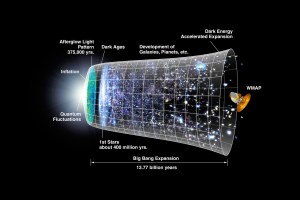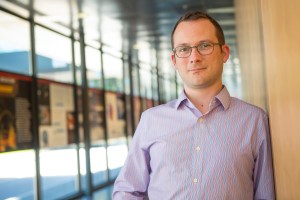Tag: Harvard
-
Campus & Community
Unionized students go on strike
Recently unionized Harvard student workers went on strike Tuesday, refusing to grade papers, supervise exams, or conduct research unrelated to their academic programs.
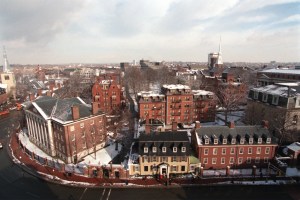
-
Campus & Community
New faculty: Martin Surbeck
A new member of the faculty of the Department of Human and Evolutionary Biology, Martin Surbeck runs one of the few bonobo research sites in the world.
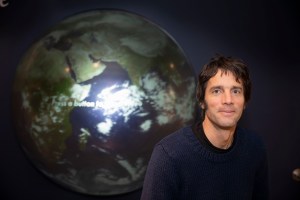
-
Campus & Community
7 Harvard seniors named Rhodes Scholars
Seven Harvard undergraduates were named Rhodes Scholars. Two other seniors were awarded Mitchell Scholarships.
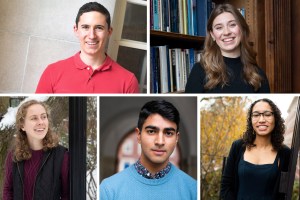
-
Science & Tech
Physics, real and fictional
A Harvard study is exploring the way humans’ sense of “intuitive physics” of the real world leaves fingerprints on the fictional universes we create.
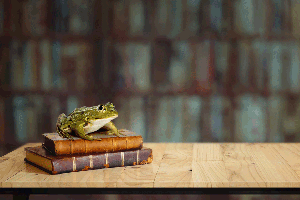
-
Campus & Community
Hundreds rally to defend DACA
A crowd of 250 students, faculty, and staff gathered on the steps of Harvard’s Memorial Church on Veterans Day for a Defend DACA rally that was part of a nationwide student walkout.
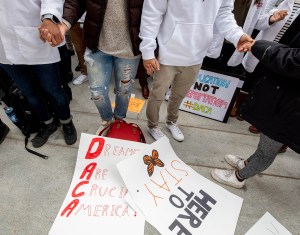
-
Science & Tech
A clue to biodiversity?
An analysis of 20 butterfly genomes found evidence that many butterfly species — including distantly related species — show a surprisingly high amount of gene flow between them, Harvard researchers found.
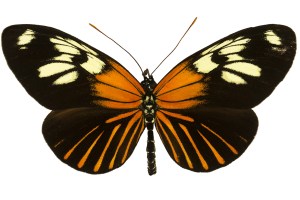
-
Science & Tech
Both marathoner and sprinter
Scientists from Harvard and the University of Virginia have developed the first robotic tuna that can accurately mimic both the highly efficient swimming style of tuna, and their high speed.
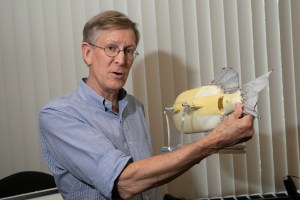
-
Nation & World
Level of campus sexual violence largely unchanged, survey says
A new survey at Harvard and 32 other institutions found that the levels of sexual violence are largely unchanged from a 2015 study. In a Q&A session, Harvard’s co-chairs of a steering committee focused on the survey’s implementation discussed the new results and what needs to happen next.
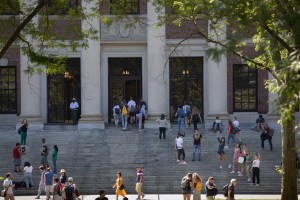
-
Nation & World
Relief and vindication
Members of Harvard and the higher education community react to ruling in admission lawsuit.
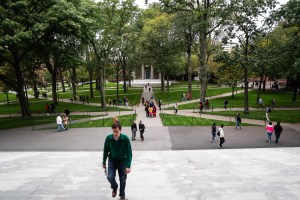
-
Science & Tech
Unhidden figures
LaNell Williams wants to encourage more women of color to pursue doctorate degrees in fields such as physics. To help make that happen, she founded the Women+ of Color Project, which last week hosted a three-day workshop that invited 20 African American, Latinx, and Native American women interested in pursuing a career in a STEM…
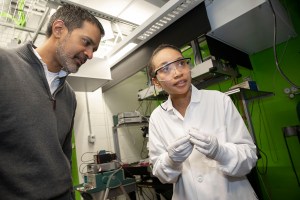
-
Science & Tech
Tiny tweezers
Using precisely focused lasers that act as “optical tweezers,” Harvard scientists have been able to capture and control individual ultracold molecules – the eventual building-blocks of a quantum computer – and study the collisions between them in more detail than ever before.
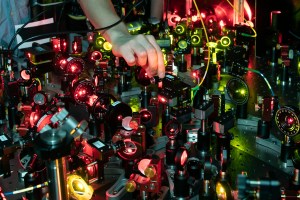
-
Campus & Community
Promising projects
Sixteen Harvard scientists are among the 93 researchers who have been selected to receive grants through the National Institutes of Health’s High-Risk, High-Reward program, which funds innovative research designed to address major challenges in biomedical science.

-
Campus & Community
Harvard joins Climate Action 100+
Harvard University announced that its endowment has joined Climate Action 100+, an investor-led initiative to ensure that the world’s largest corporate greenhouse gas emitters take steps to address climate change.
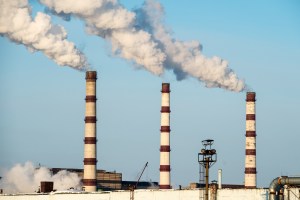
-
Science & Tech
Playing our song
Samuel Mehr has long been interested in questions of what music is, how music works, and why music exists. To help find the answers, he’s created the Music Lab, an online, citizen-science project aimed at understanding not just how the human mind interprets music, but why music is a virtually ubiquitous feature of human societies.
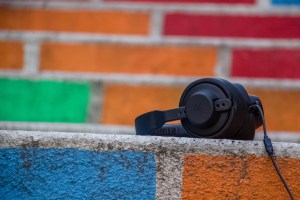
-
Campus & Community
Black hole project nets Breakthrough Prize
The nearly 350 astronomers, postdoctoral fellows, graduate students, and undergraduates who worked for more than a decade to capture the first-ever image of a black hole have been named the recipients of the 2020 Breakthrough Prize in Fundamental Physics.
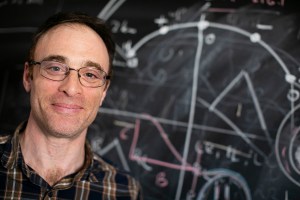
-
Science & Tech
Lessons in learning
Study shows students in ‘active learning’ classrooms learn more than they think
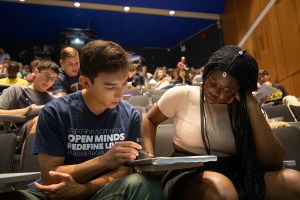
-
Science & Tech
How a zebrafish model may hold a key to biology
Martin Haesemeyer set out to build an artificial neural network that worked differently than fish’s brains, but what he got was a system that almost perfectly mimicked the zebrafish — and that could be a powerful tool for understanding biology.
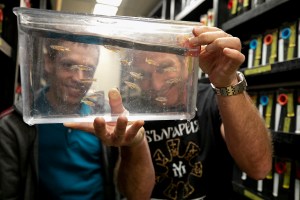
-
Science & Tech
Want to avoid climate-related disasters? Try moving
For decades, the response to flooding and hurricanes was a vow to rebuild. A.R. Siders believes the time has come to consider managed retreat, or the practice of moving communities away from disaster-prone areas to safer lands.
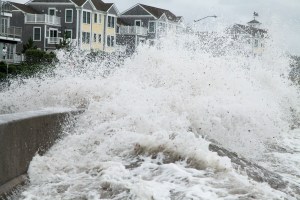
-
Science & Tech
Clever crows
A new paper, co-authored by Dakota McCoy, a graduate student working in the lab of George Putnam Professor of Biology David Haig, suggests that, after using tools, crows were more optimistic.
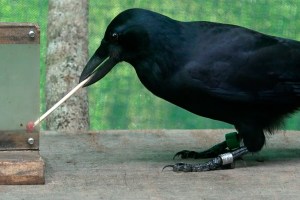
-
Science & Tech
How the moon came to be
A fourth-year graduate student in the lab of Professor of Geochemistry Stein Jacobsen, Yaray Ku is working on a project aimed at understanding how the moon formed, and to do it, she’s working with actual lunar samples.
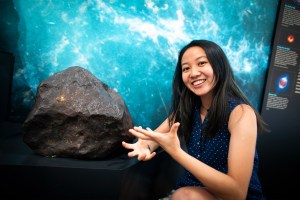
-
Health
What fuels prejudice?
A postdoctoral fellow working in the lab of Psychology Professor Matt Nock,Brian O’Shea is the lead author of a study that suggests racial tension may stem not from different groups being exposed to each other, but fear of a different sort of exposure — exposure to infectious diseases. The study is described in a July…
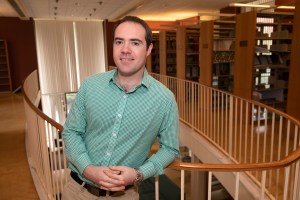
-
Campus & Community
Funding promising scientists
Associate Professor of Physics Cora Dvorkin and Associate Professor of Computer Science Stratos Idreos will each receive at least $150,000 a year for the next five years through the Department of Energy Early Career Research Program.
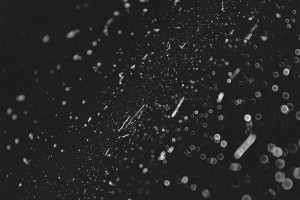
-
Science & Tech
Spreading seeds of life
Scientists at the Institute for Theory and Computation have made a comprehensive calculation suggesting that panspermia could happen, and have found that as many as 10 trillion asteroid-sized objects might exist that carry life.
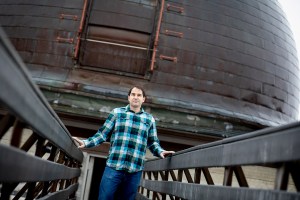
-
Campus & Community
Shining Commencement moments, captured
Not lost amid Harvard’s definitive ritual of revelry and accomplishment were the 6,665 graduates and their families, whose years of labor and sacrifice led them to the day.
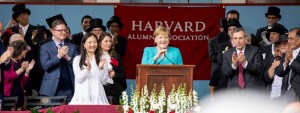
-
Nation & World
Angela Merkel, the scientist who became a world leader
In advance of German Chancellor Angela Merkel’s arrival at Harvard as its Commencement speaker, those who know her describe her rise to global prominence.

-
Campus & Community
Places we love
Harvard students, professors, alumni, and staff talk about the places on campus they love most.
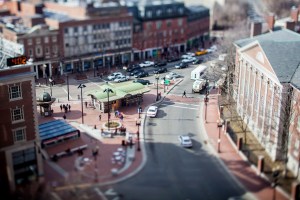
-
Nation & World
Unpacking the power of poverty
Social scientists have long understood that a child’s environment can have long-lasting effects on their success later in life. Exactly how is less well understood. A new Harvard study points to a handful of key indicators, including exposure to high lead levels, violence, and incarceration, as key predictors of children’s later success.
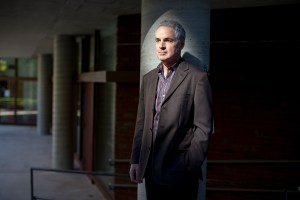
-
Work & Economy
Cities’ wealth gap is growing, too
Harvard research has found that separation between rich and poor communities has increased during the past 40 years.
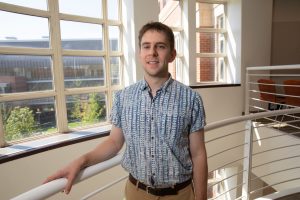
-
Science & Tech
Before the Big Bang
Harvard researchers are proposing using a “primordial standard clock” as a probe of the primordial universe. The team laid out a method that may be used to falsify the inflationary theory experimentally.
